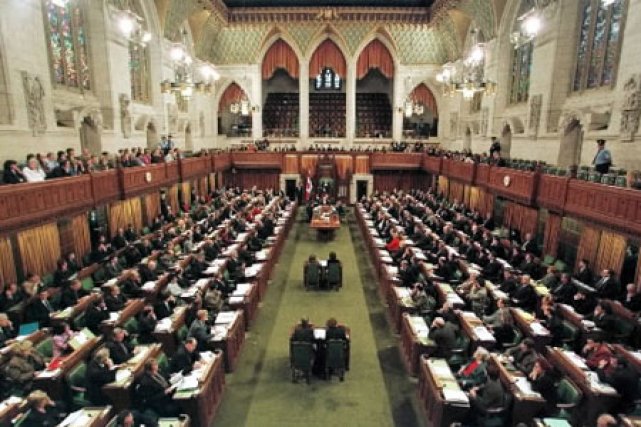What if the party that once formed the official Opposition in Ottawa, and dominated federal politics in Quebec for two decades, held a leadership contest and no one came?
There are so far no declared candidates to head the Bloc Québécois, which is choosing a new leader in May. The couple of MPs who say they’re thinking about running are total unknowns even in their own province. The real debate going on in sovereigntist ranks is not about who should lead the Bloc, but about whether the ailing separatist party should simply close up shop.
Many outspoken sovereigntists think the Bloc has outlived its usefulness in Ottawa and that all the separatist movement’s energies and financial resources should be focused on the provincial scene. Besides, phasing out per-vote subsidies for federal parties is hitting the Bloc much harder than its rivals, which are more adept at fundraising.
Rather than simplifying voter choices in the next federal election, however, a weaker Bloc may only complicate them.
When it comes to federal politics, Quebeckers are the most ambidextrous and strategic voters in Canada. How they play their cards in the 2015 vote could decide who wins the country. The conditions that allowed Stephen Harper to win a majority government in 2011 with only five Quebec seats will not be replicated.
What will the roughly one-quarter of Quebeckers who voted for the Bloc in 2011 do in 2015? Current Bloc support stands in the high teens, though those numbers likely reflect “parked” votes that will enter into play once an election campaign gets under way. Without a big-name leader or much money to campaign with, the Bloc could flirt with annihilation.
It’s unclear that many of those who supported the Bloc in 2011 would turn toward the New Democrats. Pollster Jean-Marc Léger figures the NDP maximized its Bloc defectors in the last election. Next time, some diehard sovereigntists might stay home. “And some of them will vote, but it will be against, rather than for, someone,” he adds. “It will be a more strategic vote.”
Despite a base that is full of social activists and union types, the Bloc’s support has always been a coalition of hard and soft nationalists from across the spectrum. Among those supporters, notes Université de Montréal sociologist Claire Durand, “you can find people who are very far to the left and people who are very far to the right.”
This is why Conservative aims of picking up seats in a so-called “Blue Arrow” of ridings stretching from the Saguenay through Quebec City and along the eastern shore of the St. Lawrence River – a strategy revealed last week by The Globe’s Daniel Leblanc – are not as far-fetched as they sound. Though Mr. Harper has a 67 per cent unfavourable rating in Quebec, according to a December Léger Marketing poll, a weaker Bloc will help his party in ridings where it is already a contender.
Astonishingly, NDP Leader Tom Mulcair registered a 60 per cent favourable rating in the Léger poll, making him by far the most popular federal politician in the province. But Mr. Léger is doubtful that Mr. Mulcair’s current popularity will enable the NDP to hold on to most of the 59 seats it won in 2011 in a spectacular show of affection for then-leader Jack Layton.
Polling conducted by Prof. Durand after the last election helps explain why. The Conservatives, Liberals and Bloc each lost about one-third of their 2008 supporters to the NDP in 2011. While some NDP converts changed their vote in the hope of preventing a Conservative majority, others simply liked the leader or were fed up with the Bloc’s negative tone. It became easier to switch to the NDP as the party began rising in the polls.
Paradoxically, that should worry Mr. Mulcair. If there is any federal party with momentum in Quebec right now, it’s Justin Trudeau’s Liberals. Even some Bloc voters, Mr. Léger says, could move to the Liberals if they think Mr. Trudeau will form a government. After two decades with most of their MPs on the opposition benches, Quebeckers may finally opt to be on the winning side.
Bloc or no Bloc, Quebec could surprise us once again.
An ailing Bloc may only muddy the next election































Laissez un commentaire Votre adresse courriel ne sera pas publiée.
Veuillez vous connecter afin de laisser un commentaire.
Aucun commentaire trouvé